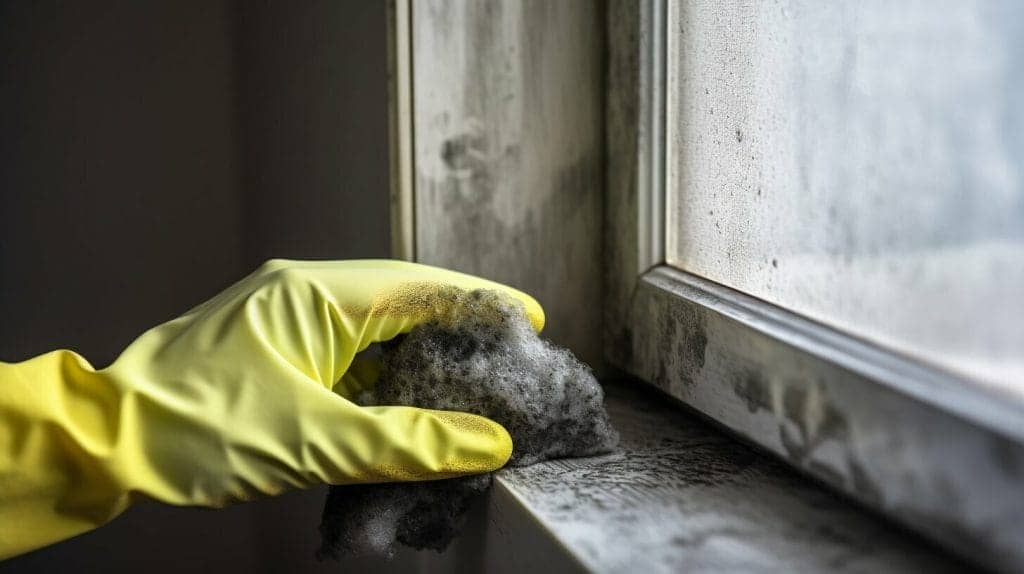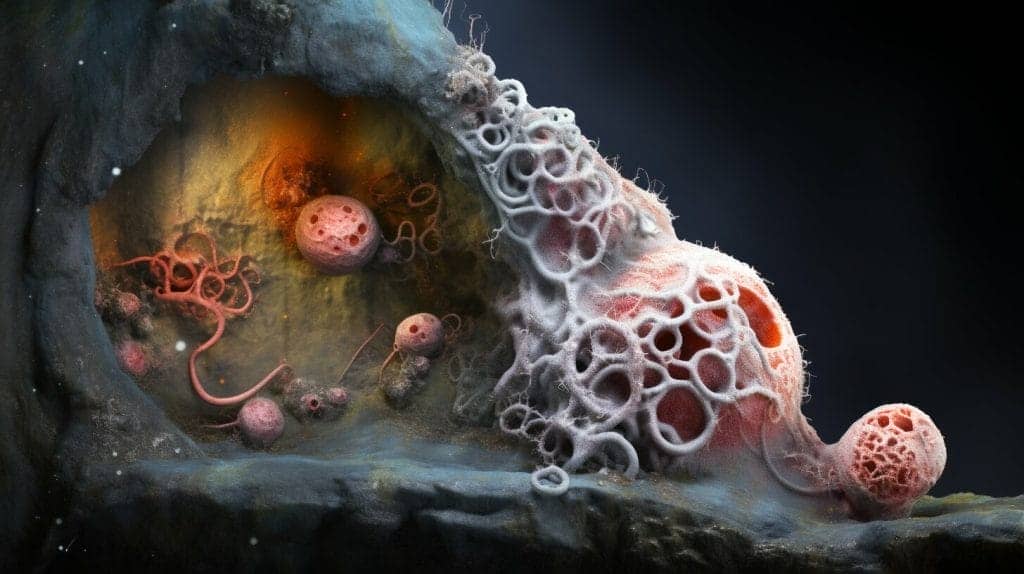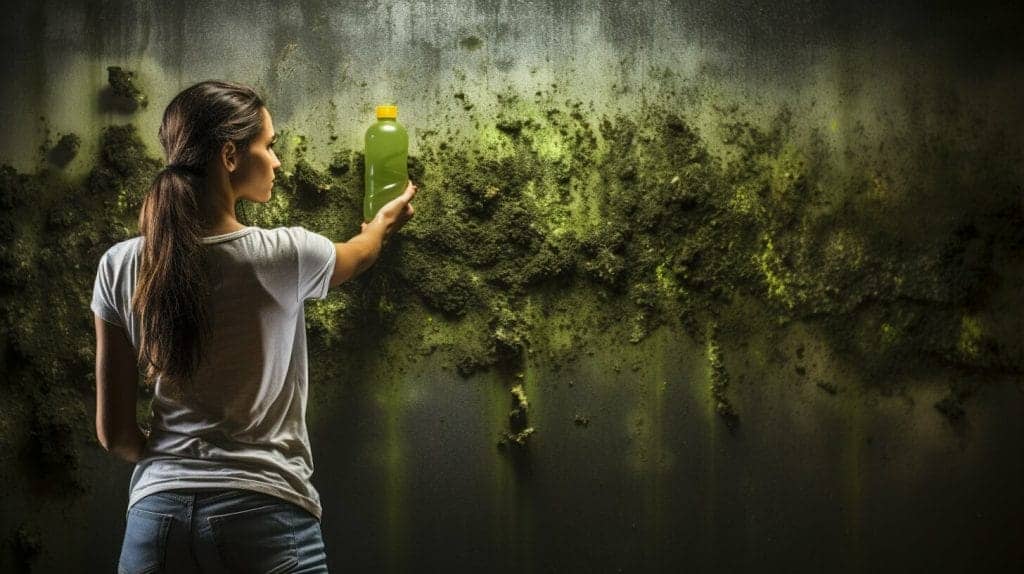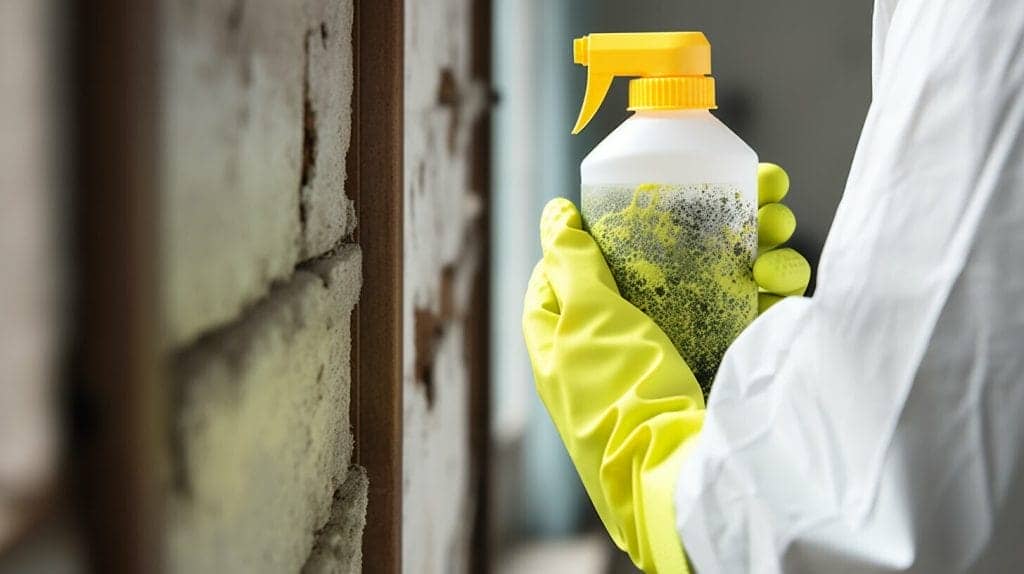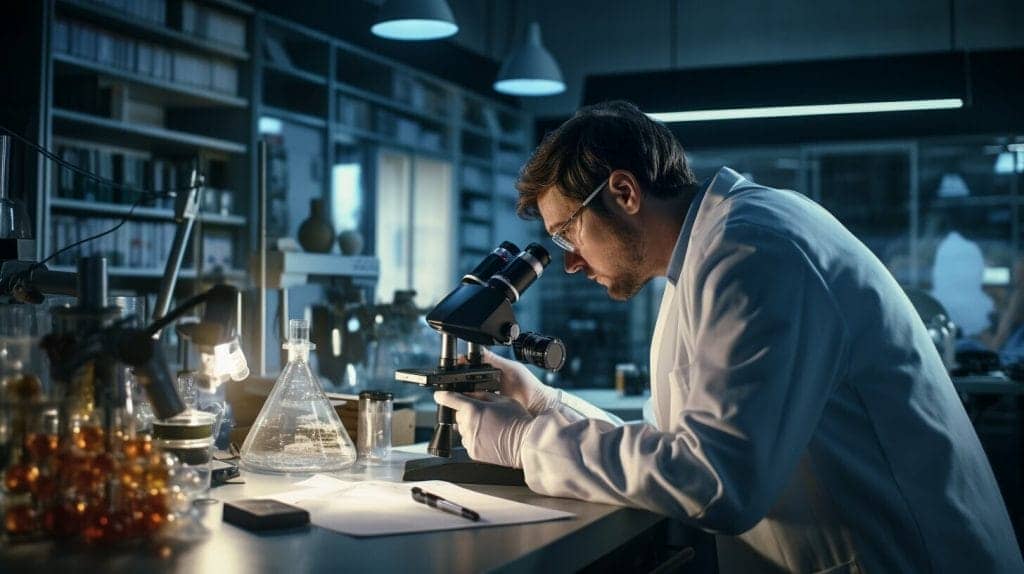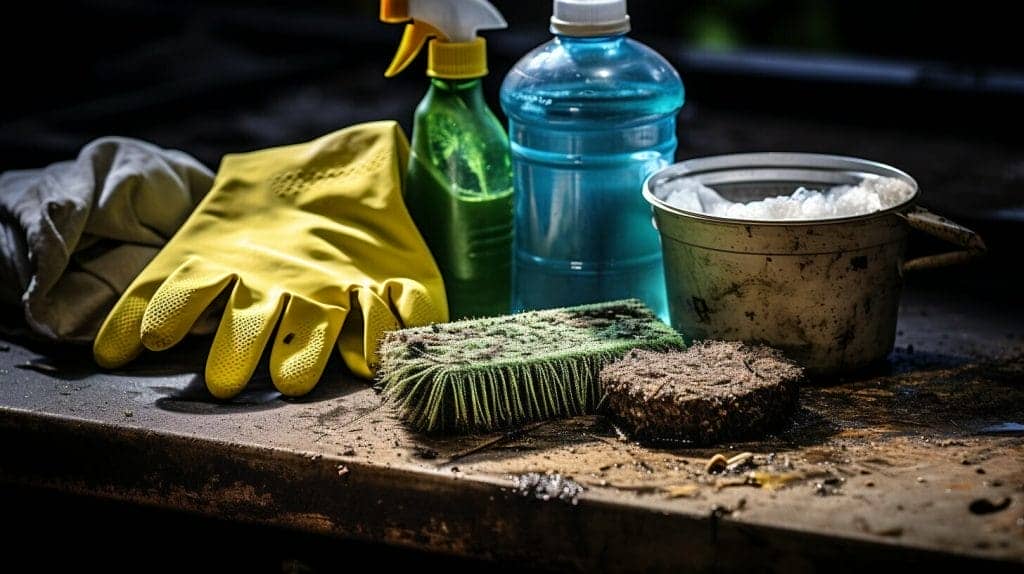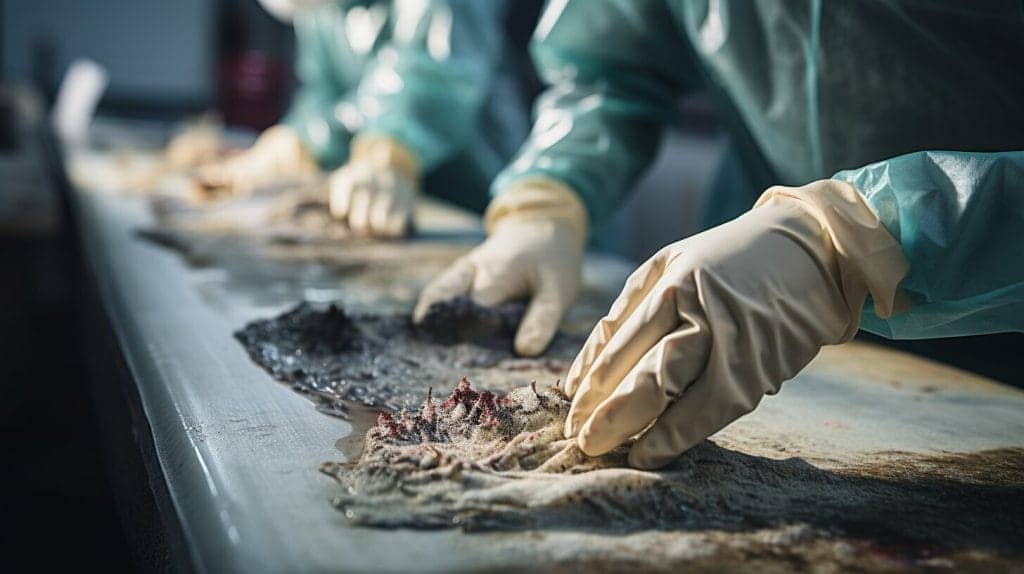Have you ever wondered if toxic mold exposure can lead to renal disease? Research suggests that mold toxins can, in fact, impact kidney function and cause serious health problems. In this section, we will explore the link between toxic mold and renal disease. We’ll take a closer look at the potential effects of mold exposure on kidney health and discuss the research that has been conducted in this area.
If you are concerned about the impact of toxic mold on your renal function, read on to learn more about this important health topic.
Understanding Toxic Mold and Its Effects on the Human Body
Toxic mold is a type of mold that produces harmful mycotoxins, which can have serious negative effects on human health. When inhaled or ingested, these mycotoxins can cause a wide range of health problems, including renal disease. While some types of mold are harmless to humans, toxic mold is a serious health concern that should be addressed immediately.
The effects of toxic mold on the human body can vary depending on the individual and the length and intensity of exposure. However, some of the most common symptoms of mold-induced health issues can include respiratory problems, allergic reactions, and neurological issues. Long-term exposure to toxic mold can also lead to serious health issues, including renal damage and renal failure.
One of the ways that toxic mold can enter the body is through inhalation. When mold spores are inhaled, they can make their way into the lungs and cause respiratory issues. Mold can also enter the body through the skin or through ingestion. Ingesting contaminated food or water can lead to serious health problems, including renal damage.
How Does Toxic Mold Affect Kidney Function?
Mycotoxins, which are produced by toxic mold, can cause damage to the body’s organs, including the kidneys. When mycotoxins are ingested or inhaled, they can enter the bloodstream and be carried to the kidneys, where they can cause inflammation and damage to the renal tissue. This can lead to a decrease in renal function and, in severe cases, renal failure.
Long-term exposure to toxic mold can also lead to the development of chronic renal disease. This occurs when the kidneys are unable to filter waste and excess fluids from the blood, leading to a buildup of toxins in the body. Over time, this can lead to serious health complications and require medical intervention.
How Can You Protect Yourself from the Effects of Toxic Mold?
If you suspect that you may have been exposed to toxic mold, it is important to seek medical attention immediately. Early intervention can help prevent serious health complications and improve the chances of a full recovery. If you live or work in an environment that may harbor toxic mold, there are steps you can take to protect yourself:
- Keep your home or workplace clean and dry
- Monitor humidity levels and use a dehumidifier if necessary
- Fix leaks and water damage promptly
- Avoid using carpet in areas with high moisture, such as bathrooms or basements
- Wear protective gear, such as gloves and masks, when cleaning or working in areas with mold
By taking these steps and remaining vigilant for signs of mold, you can help protect yourself from the harmful effects of toxic mold exposure, including renal disease. If you believe you may be experiencing symptoms related to mold exposure, speak with your healthcare provider for further guidance.
The Link Between Mold Exposure and Kidney Disease
Research has shown that exposure to toxic mold can have serious implications for renal health. Mold toxins can cause damage to the kidneys, leading to renal disease and other related problems.
The connection between mold exposure and renal disease is not yet fully understood, but studies have suggested that prolonged exposure to mold toxins can lead to renal impairment and dysfunction. Mold toxins can cause inflammation and damage to the kidneys, which may impair their ability to function properly.
The Effects of Mold Toxins on Kidney Function
Mold toxins can enter the body through inhalation or ingestion, and can lead to a range of health problems, including renal disease. Mold toxins can cause oxidative stress and inflammation, leading to damage in the kidneys and other organs.
In some cases, mold toxins can directly damage the kidneys by inhibiting their ability to filter out toxins and waste products from the blood. This can lead to a buildup of toxins in the body, which may cause additional health problems.
The Role of Mycotoxins in Renal Disease
Mycotoxins, which are produced by certain types of toxic molds, have been shown to have a particularly damaging effect on the kidneys. Mycotoxins can cause renal tubular damage, leading to kidney dysfunction and renal disease.
Additionally, mycotoxins can exacerbate existing renal disease, making it more difficult to manage and treat. Studies have suggested that mycotoxin exposure may increase the risk of kidney damage in individuals with pre-existing renal disease.
Other Renal Implications of Toxic Mold Exposure
In addition to renal disease, exposure to toxic mold can lead to a range of other renal problems. These may include:
- Kidney stones
- Urinary tract infections
- Inflammation of the kidneys
- Changes in urine production and output
If you have been exposed to toxic mold and are experiencing any of these symptoms, it is important to seek medical attention right away. Early intervention can help prevent further damage to the kidneys and improve your overall health outcomes.
Symptoms of Renal Disease Caused by Toxic Mold
Renal disease caused by toxic mold exposure can lead to a range of symptoms that may vary in severity. Some people may develop symptoms after only a few days of exposure, while others may not experience any noticeable symptoms for months or even years.
One of the most common symptoms of mold-related renal disease is changes in urine volume and frequency. This may include urinating more frequently than usual, or experiencing a decreased urine output. Some people may also experience difficulty urinating or painful urination.
Other symptoms of mold-related renal disease may include:
- Blood in the urine
- Fatigue or weakness
- Swelling of the feet, ankles, or hands
- High blood pressure
- Nausea and vomiting
- Back pain
These symptoms can have a significant impact on a person’s overall health and quality of life, and should be taken seriously. If you suspect you may have been exposed to toxic mold and are experiencing any of these symptoms, it is important to seek medical attention right away.
Signs of Advanced Renal Disease
In some cases, mold-related renal disease can progress to a more advanced stage, with more severe symptoms. Signs of advanced renal disease may include:
- Severe swelling throughout the body, including the face and eyes
- Shortness of breath
- Confusion or difficulty concentrating
- Chest pain
- Seizures
If you experience any of these symptoms, seek immediate medical attention.
Testing for Mold Poisoning and Renal Function
If you suspect that you may have been exposed to toxic mold and are experiencing symptoms related to renal disease, it is important to seek medical attention right away. Your doctor may recommend a series of tests to check for mold poisoning and any related damage to your kidney function.
One common test used to diagnose mold exposure is a blood test. This test can detect the presence of antibodies in your blood that are associated with exposure to certain types of mold. Your doctor may also recommend a urine test, which can detect the presence of mycotoxins in your system.
If you have been exposed to toxic mold for an extended period of time, your doctor may recommend additional tests to check for damage to your kidneys and other vital organs. These tests may include a kidney function test, which can measure your kidney’s ability to filter waste from your blood.
Types of Mold Exposure Tests
There are several different types of tests that may be used to diagnose mold exposure and related renal function issues. These tests include:
- Blood test: A blood test can detect the presence of antibodies associated with exposure to certain types of mold.
- Urine test: A urine test can detect the presence of mycotoxins in your system.
- Biopsy: In some cases, a biopsy may be necessary to determine whether mold has caused damage to your kidney tissue.
- Imaging tests: Imaging tests such as an MRI or CT scan may be used to examine your kidneys and other vital organs for signs of damage.
It is important to note that not all tests to diagnose mold exposure are conclusive, and results may need to be interpreted in conjunction with a physical examination and other factors, such as your medical history and symptoms.
Preventing Toxic Mold Exposure
Preventing toxic mold exposure is key to protecting your renal health. Follow these tips to keep your home and workplace mold-free:
- Address any water leaks or moisture issues promptly. Mold thrives in damp environments, so it’s important to keep surfaces dry and well-ventilated.
- Use a dehumidifier to reduce humidity levels in your home or workplace.
- Clean and dry any water-damaged materials or surfaces within 24-48 hours to prevent mold growth.
- Clean and disinfect bathrooms and other high-moisture areas regularly. Use mold-resistant products where possible.
- Ensure proper ventilation in your home or workplace, particularly in areas like the bathroom and kitchen.
- Regularly inspect and clean air conditioning systems, ducts, and filters.
In addition to these preventive measures, make sure to speak with your healthcare provider if you suspect you may have been exposed to mold toxins. Early intervention and testing can help catch any potential renal problems before they become more serious.
Treatment for Renal Disease Caused by Toxic Mold
The treatment for renal disease caused by toxic mold exposure will depend on the severity of the condition and the symptoms present. Early intervention is important to prevent further damage to the kidneys.
Medical Treatment Options
| Treatment | Description |
|---|---|
| Antihypertensive Medications | Used to lower blood pressure, which can help slow the progression of kidney damage. |
| Corticosteroids | May be used to reduce inflammation and slow the progression of renal damage. |
| Immunosuppressive Drugs | Used to suppress the immune system and reduce inflammation in the kidneys. |
| Dialysis | A treatment that involves removing waste and excess fluid from the blood when the kidneys are no longer able to function properly. |
| Kidney Transplant | May be necessary in severe cases where the kidneys have sustained significant damage. |
It’s important to keep in mind that these medical treatments are aimed at managing the symptoms of renal disease caused by toxic mold exposure. Addressing the root cause of the problem – mold exposure – is also important to prevent further damage to the kidneys.
Alternative Treatment Options
In addition to medical treatments, there are also alternative treatment options that may be helpful for managing the symptoms of renal disease caused by toxic mold exposure. These include:
- Acupuncture
- Massage therapy
- Nutritional counseling
- Herbal remedies
- Chelation therapy
It’s important to speak with a healthcare professional before pursuing any alternative treatment options, as they may interact with other medications or exacerbate underlying health conditions.
Overall, the key to successful treatment of renal disease caused by toxic mold exposure is early intervention and addressing the root cause of the problem. With proper medical treatment and lifestyle adjustments, many individuals are able to manage the symptoms of this condition and maintain kidney health.
Living with Renal Disease Caused by Toxic Mold
If you have been diagnosed with renal disease caused by toxic mold exposure, it can be a challenging and sometimes overwhelming experience. Here are some tips for coping with the effects of toxic mold on your renal health.
1. Seek medical treatment
If you suspect that you have been exposed to mold toxins and are experiencing symptoms of renal disease, it is important to seek medical attention as soon as possible. Early intervention can help to prevent further damage to your kidneys and improve your overall health.
2. Make lifestyle adjustments
Living with renal disease caused by toxic mold exposure may require some lifestyle changes. This could include following a specific diet, taking medication, and avoiding certain activities or environments that could exacerbate your symptoms. Your doctor can provide guidance on managing your condition and making any necessary adjustments.
3. Reduce exposure to mold
To reduce your risk of further exposure to mold toxins, it is important to take steps to eliminate mold from your living environment. This can include fixing leaks, improving ventilation, and using mold-resistant building materials.
4. Connect with support groups
Connecting with others who have experienced renal disease caused by toxic mold exposure can be helpful in coping with the challenges associated with this condition. Support groups can provide a safe and understanding space to share experiences, ask questions, and find resources.
5. Prioritize self-care
Living with renal disease caused by toxic mold exposure can be stressful and emotionally draining. It is important to practice self-care activities such as exercising, getting enough sleep, and engaging in relaxation techniques to help manage stress and maintain your overall health.
FAQ: Common Questions About Mold and Renal Disease
As we’ve explored, there is a clear link between toxic mold exposure and renal disease. Here are some common questions and answers about this important health topic.
Q: What is toxic mold?
A: Toxic mold refers to certain types of molds that produce mycotoxins. These toxins can cause a range of health issues, including renal disease.
Q: What are the symptoms of mold-related renal disease?
A: Symptoms can include decreased kidney function, proteinuria (the presence of excess protein in the urine), hypertension (high blood pressure), and more.
Q: How does toxic mold exposure affect kidney function?
A: Mycotoxins produced by toxic mold can damage the kidneys, leading to decreased function and renal disease.
Q: How can I prevent toxic mold exposure?
A: Preventing mold growth is the best way to avoid exposure. Keep your home and workplace free of moisture, fix any leaks promptly, and ensure proper ventilation in all areas.
Q: Are there any tests for mold-related renal disease?
A: Yes, there are tests that can check for decreased kidney function and other symptoms of mold-related renal disease. Talk to your doctor if you suspect you may have been exposed to toxic mold.
Q. Is there a cure for mold-related renal disease?
A: There is no cure for renal disease caused by toxic mold, but early intervention and treatment can help manage symptoms and slow the progression of the disease.
Q: Where can I find more information on mold-related renal disease?
A: You can consult with your doctor, or check out reputable online sources such as the CDC or EPA for more information on this important health topic.
Dr. Francisco Contreras, MD is a renowned integrative medical physician with over 20 years of dedicated experience in the field of integrative medicine. As the Medical Director of the Oasis of Hope Hospital in Tijuana, Mexico, he has pioneered innovative treatments and integrative approaches that have been recognized globally for the treatment of cancer, Lyme Disease, Mold Toxicity, and chronic disease using alternative treatment modalities. Dr. Contreras holds a medical degree from the Autonomous University of Mexico in Toluca, and speciality in surgical oncology from the University of Vienna in Austria.
Under his visionary leadership, the Oasis of Hope Hospital has emerged as a leading institution, renowned for its innovative treatments and patient-centric approach for treating cancer, Lyme Disease, Mold Toxicity, Long-Haul COVID, and chronic disease. The hospital, under Dr. Contreras's guidance, has successfully treated thousands of patients, many of whom traveled from different parts of the world, seeking the unique and compassionate care the institution offers.
Dr. Contreras has contributed to numerous research papers, articles, and medical journals, solidifying his expertise in the realm of integrative medicine. His commitment to patient care and evidence-based treatments has earned him a reputation for trustworthiness and excellence. Dr. Contreras is frequently invited to speak at international conferences and has been featured on CNN, WMAR2 News, KGUN9 News, Tyent USA, and various others for his groundbreaking work. His dedication to the medical community and his patients is unwavering, making him a leading authority in the field.
Contreras has authored and co-authored several books concerning integrative therapy, cancer, Lyme Disease and heart disease prevention and chronic illness, including "The Art Science of Undermining Cancer", "The Art & Science of Undermining Cancer: Strategies to Slow, Control, Reverse", "Look Younger, Live Longer: 10 Steps to Reverse Aging and Live a Vibrant Life", "The Coming Cancer Cure Your Guide to effective alternative, conventional and integrative therapies", "Hope Medicine & Healing", "Health in the 21st Century: Will Doctors Survive?", "Healthy Heart: An alternative guide to a healthy heart", “The Hope of Living Cancer Free”, “Hope Of Living Long And Well: 10 Steps to look younger, feel better, live longer” “Fighting Cancer 20 Different Ways”, "50 Critical Cancer Answers: Your Personal Battle Plan for Beating Cancer", "To Beat . . . Or Not to Beat?", and “Dismantling Cancer.”



